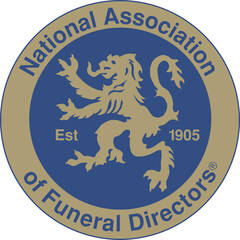Speaking at Funerals

Delivering a eulogy or playing any speaking role at a funeral can seem overwhelming, with fears commonly felt around how you will manage to speak the words when emotions are running high. To help make a difficult time that little easier, we have put together some advice to help you shape your thoughts and give you the confidence to pay the ultimate tribute when the time comes.
What does speaking at a funeral involve?
Speaking at a funeral is not just about speaking to an audience, it is about paying tribute to a life loved. When you see it in this context, your role as speaker can transcend to the person who has died, and your words will reflect their memory and legacy.
Speaking can take many forms such as a personal eulogy, a poem, or a reading, an intimate opportunity to encapsulate the essence of the person, to share memories and details of the person who has died, that perhaps many attending may not have been aware of and to paint a picture of who they were and what they meant to others. It is one last opportunity to say to that person what they meant to you and to those that loved them.
How can I best prepare for delivering a speech at a funeral?
Speaking at a funeral is undoubtedly an emotionally daunting task. It’s important to remember that everyone gathered together are present in both support and love and will be cognisant of the courage required to prepare and stand up to speak at an extremely challenging time.
Adequate preparation is essential and practising your speech before the day, allowing yourself to connect with all the emotions that the words will bring to the surface, will help on the day. If you approach the task with humility and reverence, you will likely feel the privilege of being entrusted with the responsibility of honouring a life lived.
What are the different ways I could approach preparing my speech?
There are different ways of preparing what you will say at a funeral. Here are some ideas which may help you prepare:
1) Use Stories
One of the most powerful ways to engage an audience at a funeral is through storytelling. Stories have an ability to transcend grief, bridging the gap between past and present. They allow mourners the chance to reminisce, laugh, and find solace in a shared experience. As a speaker, you might be able to weave together anecdotes and personal memories to create a heartfelt tribute
2) Be Authentic
You don’t have to feel that your delivery needs to be highly polished. The most authentic way is to just be sincere and speak from the heart. A raw expression of love, what the person meant to you, what you admired in them will be full of meaning and highly genuine. This way as a speaker you invite others to share in the pain and find comfort in solidarity that they will receive from your words.
3) Acknowledge the Pain
Funerals are sombre occasions, and acknowledging the family’s pain and sorrow can be an equally important aspect. While it can be tempting to focus solely on celebrating a life, it is equally important to validate the emotions of those who are grieving. This acknowledges the depth of the grief and offers empathy and understanding to those present.
4) Finding Hope
Amidst the sadness, funeral speeches have the power to inspire hope and resilience. They remind us that even in our darkest moments, there is light to be found, and that life, although terminal for us all, is precious. By infusing messages of hope, you can uplift the audience and encourage them towards acceptance and healing.
Can CPJ Field help with public speaking at a funeral?
Our colleagues are well prepared for guiding and advising families on the difficult task of speaking at a funeral. We encourage and support speakers in this moment of privilege, where the opportunity to honour the person who has died and comfort the grieving, is a one-off chance, which will be appreciated by so many and rewarding for the person who makes the speech.
For more information and guidance on funeral planning, contact your local funeral director.





